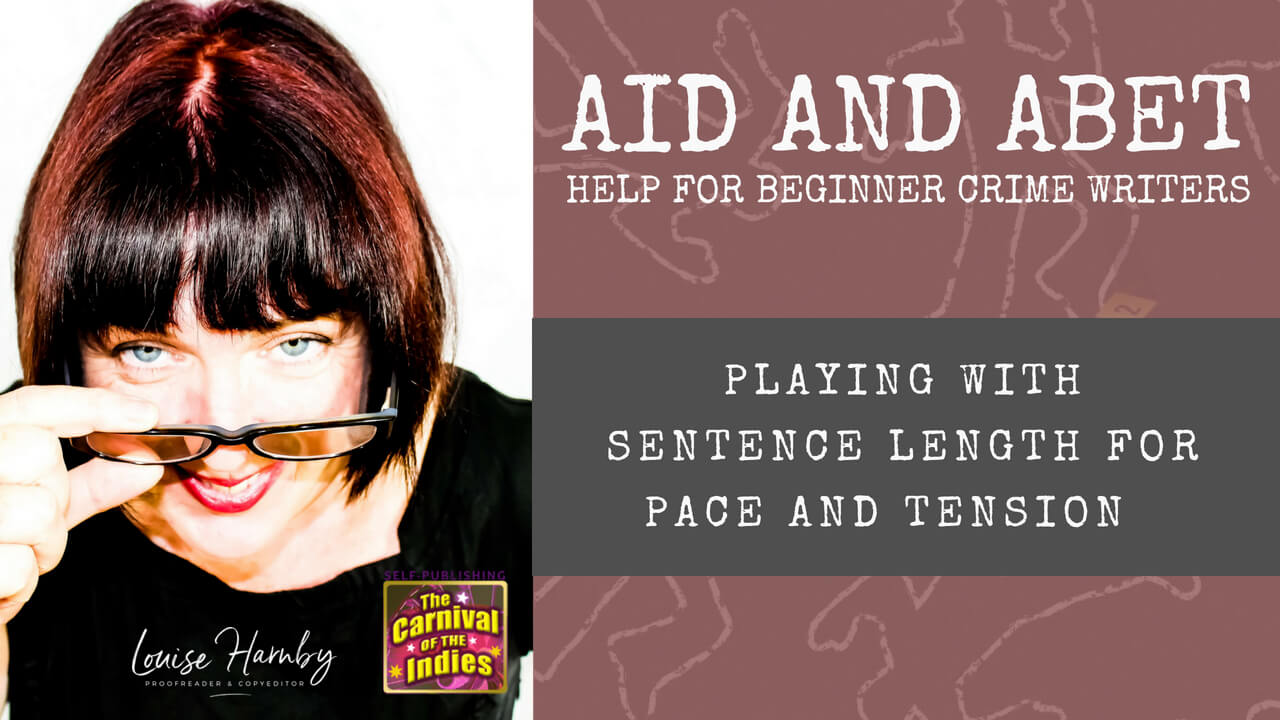Today’s post is about creating tension in crime fiction with sentence length. I look at how overwriting can mar the pace of a novel and frustrate a reader, and how less can sometimes be more.
This post featured in Joel Friedlander's Carnival of the Indies #93
Around eighty per cent of the books that end up in my editing studio are in the crime fiction genre.
One of the most common problems I encounter is overwriting. That’s not because the authors are poor writers. It’s because they’re nervous writers.
It takes a lot of hard graft to put enough words on a page to make a book. Yet it takes an equal amount of courage to remove them ... or some of them.
‘What if the reader just doesn’t get it?’
‘What if they’ve forgotten what I told them above?’
‘What if I haven’t provided enough detail?’
‘What if I just love both ways I’ve said that?’
These are the kinds of questions that result in anxious authors bulking up their prose.
In a bid to help you trim the fat, I’m going to explore the following:
One of the most common problems I encounter is overwriting. That’s not because the authors are poor writers. It’s because they’re nervous writers.
It takes a lot of hard graft to put enough words on a page to make a book. Yet it takes an equal amount of courage to remove them ... or some of them.
‘What if the reader just doesn’t get it?’
‘What if they’ve forgotten what I told them above?’
‘What if I haven’t provided enough detail?’
‘What if I just love both ways I’ve said that?’
These are the kinds of questions that result in anxious authors bulking up their prose.
In a bid to help you trim the fat, I’m going to explore the following:
- Trusting your reader
- Feisty fragments and snappy shorties
- Damage by dilution
- Letting go of what you love















No comments:
Post a Comment